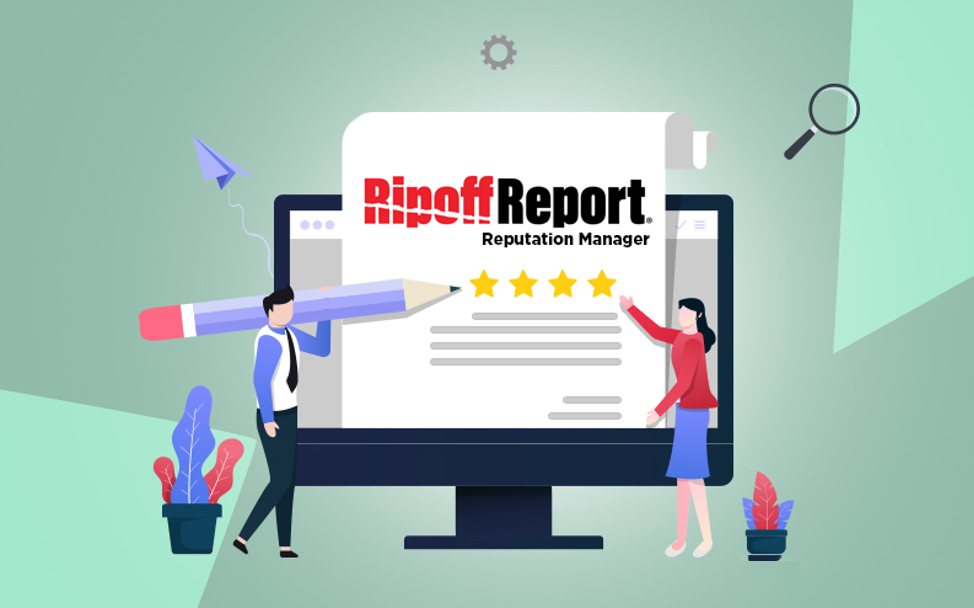The online reputation landscape can be tricky to navigate, especially if your business has been targeted by negative reviews on platforms like Ripoff Report. For many businesses, a Ripoff Report complaint can cause serious damage to their reputation, leaving them frustrated and unsure of how to respond. In this article, we’ll take a closer look at Ripoff Report, who owns it, the laws that protect it, and how you can take back control of your online reputation.
What is Ripoff Report?
Ripoff Report is a consumer complaint website founded in 1998, designed to give consumers a platform to publicly air grievances about businesses and individuals. While it was initially meant to be a tool for consumer protection, Ripoff Report has gained a reputation for being a site where anyone can post unverified and anonymous complaints, which often rank high on search engines like Google.
Who Owns Ripoff Report?

Ripoff Report is owned by Ed Magedson and his company, Xcentric Ventures, LLC. Magedson positions himself as a defender of free speech, allowing individuals to post complaints that remain online indefinitely—whether the accusations are true or not. Over the years, Ed Magedson has become a polarizing figure in the reputation management world. While he claims to support consumer rights, many businesses accuse him of refusing to remove defamatory content unless they pay for Ripoff Report’s Corporate Advocacy Program, a costly service that lets businesses respond to complaints.
The Laws That Protect Ripoff Report
One of the most frustrating aspects of dealing with Ripoff Report is its legal protection under Section 230 of the Communications Decency Act (CDA). This law, passed in 1996, shields websites from being held liable for content posted by users. Essentially, this means that Ripoff Report is not responsible for the accuracy or legality of the complaints published on its site.
What is Section 230 of the CDA?
Section 230 of the CDA states that interactive websites cannot be held responsible for the content posted by their users, giving them legal immunity from defamation lawsuits. This is why you can’t sue Ripoff Report for defamation or libel, even if the complaints on their site are proven to be false or damaging. The law's intention was to promote free speech on the internet, but it has also led to situations where websites like Ripoff Report can continue operating without accountability for the damage caused by user-generated content.
Can You Sue Ripoff Report?
In short, no, you cannot sue Ripoff Report directly because of the legal protections provided by Section 230 of the CDA. You would need to sue the individual who posted the complaint, but since most posts on Ripoff Report are anonymous, tracking down the responsible party can be incredibly difficult. Even if you manage to do so, obtaining a legal judgment against the individual does not guarantee the removal of the complaint from Ripoff Report.
This is where many businesses find themselves stuck—unable to remove harmful content from the site and frustrated by the lack of recourse.
How Does Ripoff Report Operate Legally?
Ripoff Report operates in a legally protected space by allowing users to post complaints while claiming no liability for those posts. While the Corporate Advocacy Program is offered as a way for businesses to address complaints, it comes with a hefty price tag, and the complaint itself remains online. Ripoff Report’s business model thrives on the fact that their content is user-generated and protected by Section 230.
Self-Help: The Best Defense Against Ripoff Report
While you may not be able to sue Ripoff Report or have the complaints easily removed, the best help is self-help. The most effective way to combat a Ripoff Report complaint is by displacing it in search engine rankings. This is done through SEO techniques that allow your positive content to outrank the negative links.
By creating high-quality, keyword-rich content, building a strong online presence, and using platforms like social media, blogs, and press releases, you can effectively bury Ripoff Report links further down in Google search results. This allows potential clients and customers to see the positive side of your business first.
At iContentMaker.com, we understand how damaging a Ripoff Report complaint can be. That’s why we’ve created the Ripoff Report Removal eBook—a comprehensive, step-by-step guide to help you take control of your online reputation. This eBook reveals the same tactics used by high-priced reputation management firms, but at a fraction of the cost.
Inside, you’ll learn how to:
- Create SEO-optimized content to outrank Ripoff Report.
- Build a network of websites and blogs to strengthen your online presence.
- Leverage social media and AI tools to accelerate content creation and push down negative links.
For just $19.33, you’ll have the knowledge and tools you need to bury Ripoff Report and restore your good name.
While Ripoff Report may be protected by laws like Section 230 of the CDA, that doesn’t mean you’re powerless. With the right content strategies and a commitment to displacing negative links, you can successfully bury Ripoff Report complaints and protect your business’s reputation. For a step-by-step guide on how to do it yourself, download our Ripoff Report Removal eBook today and start fighting back.



Comments ()